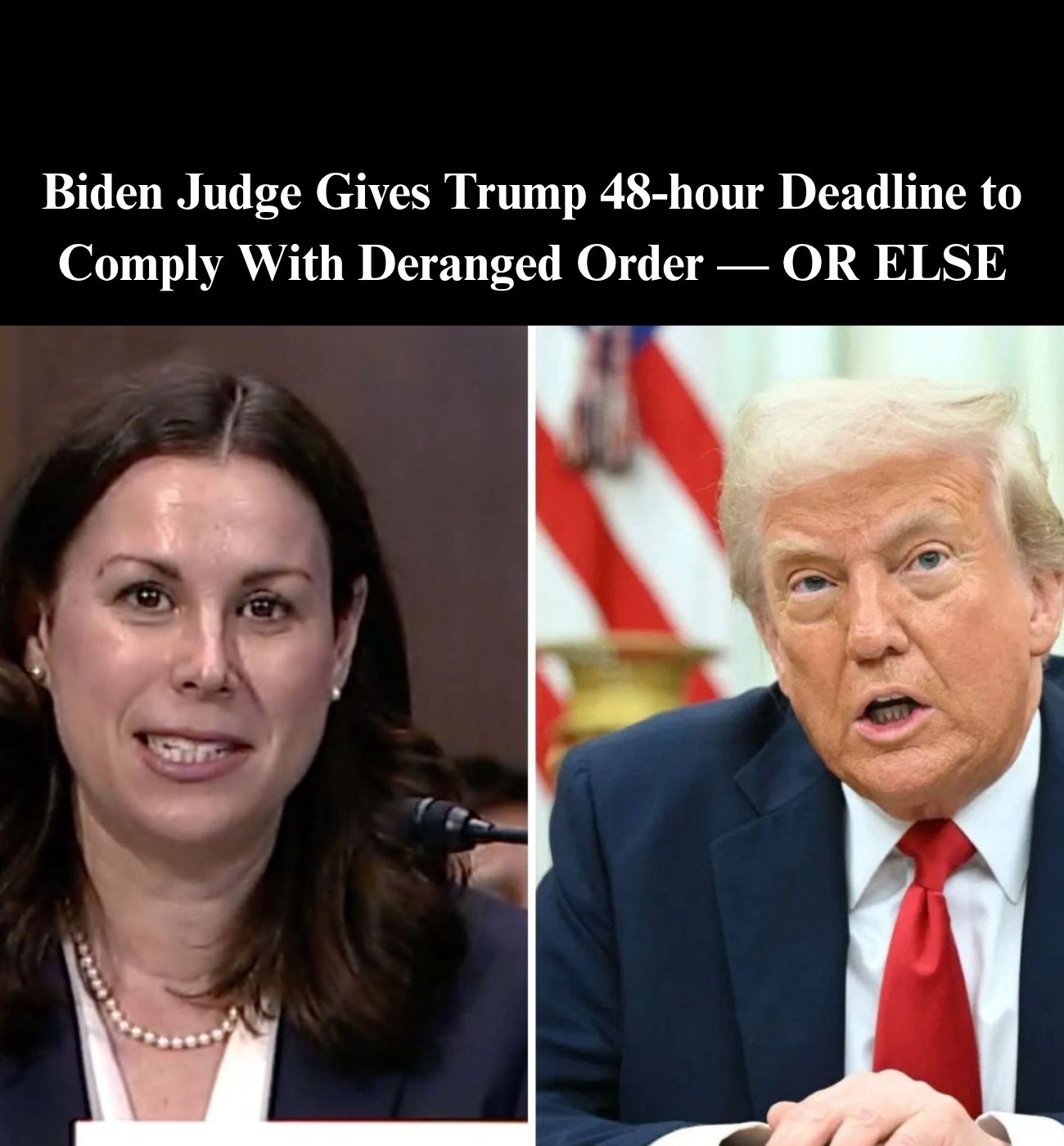A Biden-appointed federal judge has given President Donald Trump’s administration just 48 hours to justify its deployment of National Guard troops to Chicago, escalating a fierce legal and political standoff between the White House and Illinois’ Democratic leadership.
U.S. District Judge April Perry, appointed by President Joe Biden in 2022, issued the order Monday night after Illinois officials filed a lawsuit seeking to block Trump from sending federalized National Guard units into the state. Perry set a midnight Wednesday deadline for the administration’s response and scheduled a full hearing for Thursday afternoon.
For now, Perry declined to issue a temporary restraining order, allowing Trump’s deployment plan to move forward. Federal officials confirmed that roughly 200 Texas National Guard troops would be flown into Chicago by Wednesday morning to assist law enforcement operations in high-crime neighborhoods.
The lawsuit, led by Illinois Attorney General Kwame Raoul and joined by Governor J.B. Pritzker and Chicago Mayor Brandon Johnson, argues that the deployment is “an unlawful act of political retaliation” against Democratic-led jurisdictions.
“The American people should not live under the threat of occupation by the United States military simply because their city leadership has fallen out of favor with a president,” the filing reads.
Trump, however, defended his decision as both legal and necessary, saying the troops are needed to support federal agents combating gang violence and enforcing immigration laws in Chicago — a sanctuary city that restricts cooperation with federal immigration authorities.
“We have an Insurrection Act for a reason,” Trump told reporters. “If people are being killed and courts or governors are holding us up, I won’t hesitate to use it.”
The president’s remarks came amid reports of escalating violence, including confrontations between Border Patrol agents and protesters outside an immigration processing facility in the city’s southwest side. Homeland Security Secretary Kristi Noem described Chicago as “a war zone,” saying federal forces were stepping in where state and local officials had “utterly failed.”
Illinois officials blasted the characterization as a political stunt.
“This administration is following a playbook — cause chaos, create fear, and then claim justification to send in troops,” Pritzker said Tuesday. “We will not allow Illinois to be used as a prop for Donald Trump’s campaign.”
Attorney General Raoul called the deployment “unconstitutional,” arguing that the president was invoking the Insurrection Act without evidence of rebellion or unrest.
“There is no insurrection in Chicago,” Raoul said. “There is only a president abusing his power.”
Tensions on the ground have continued to escalate. On Monday night, federal agents fired pepper balls and tear gas to disperse protesters outside the U.S. Immigration and Customs Enforcement facility in Broadview, arresting more than a dozen demonstrators who blocked access roads.
Pritzker responded by accusing ICE agents of “thuggery” and “excessive force,” alleging that they had detained American citizens by mistake.
“This is a premeditated escalation designed to provoke violence and justify military intervention,” the governor said.
Noem fired back, calling the claims “baseless” and accusing Pritzker of neglecting public safety.
“Grow up and start protecting the people of your own state,” she said. “Federal law enforcement is stepping in because Illinois officials refuse to act.”
The White House insists the operation is temporary and focused solely on assisting local law enforcement.
“This is about safety, not politics,” Press Secretary Karoline Leavitt said. “President Trump will always stand with law enforcement and the American people.”
Constitutional scholars say Thursday’s hearing could set an important precedent for presidential power.
“If the court limits Trump’s authority here, it could restrict future presidents from deploying federal troops domestically,” said Harvard Law professor Alan Dershowitz. “If it upholds the move, it reaffirms very broad executive discretion under the Insurrection Act.”
For now, Judge Perry’s order remains in effect, giving Trump’s team until 11:59 p.m. Wednesday to file its defense. Legal experts expect the Justice Department to argue that the National Guard deployment falls squarely within the president’s Article II powers to enforce federal law.
Despite the legal uncertainty, Trump has shown no signs of backing down.
“We’re going to keep Chicago safe,” he told reporters late Tuesday. “They can sue all they want — we’re enforcing the law and protecting Americans.”
